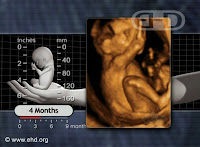Slate: Be suspicious of safe havens, because pro-lifers support them!
“Safe haven” is a catchall term for laws that allow mothers to surrender newborns to hospitals, police stations, and similar facilities without facing any liability or interrogation. Every state in the U.S. has a safe haven law.
Slate published an article on the subject last week. At first, author Christina Cauterucci talks sense:
From a harm reduction standpoint, safe haven laws are an ideal way to prevent infant death and mistreatment without ignoring the reality that some mothers, for one reason or another, won’t consider formal adoption or parenthood viable options.
The harm being reduced here is babies left in dumpsters. So yeah, pretty important. Good.
Then it gets weird.
Cauterucci, quoting a book review, asserts with no evidence whatsoever that safe haven proponents treat mothers “as vessels for the precious infants, not as people in their own right with their own needs.” Weren’t we just talking about how safe haven laws meet the needs of mothers who “for one reason or another, won’t consider formal adoption or parenthood viable options”?
Next paragraph:
Anti-abortion organizations have lobbied for safe haven laws as a means of preventing infanticide and offering another route for women who might have otherwise chosen abortion. One extreme development in safe haven options, Indiana’s pilot program for the kind of baby drop-boxes that currently exist in some countries in Europe and East Asia, is the pet project of pro-lifer Monica Kelsey.
Understand that this is Slate, whose authors and readers lean strongly in favor of abortion. When Cauterucci reports on pro-life advocacy for safe haven laws, she is making an argument against safe haven laws. That is made abundantly clear in the following paragraph, when she suggests that maybe safe haven laws aren’t all bad, “though their advocates have leaned on anti-choice rhetoric.”
Note carefully that this will not prevent anyone at Slate from continuing to assert that those mean anti-choicers do nothing to help mothers or children after birth, because we just want to control women’s bodies.
Cauterucci takes issue with Monica Kelsey’s approach in particular, stating that the U.N. “has condemned these boxes on the grounds that children have the right to identify their parents.” In an ideal world, yes, everyone would know who their parents are. We do not live in an ideal world. Not knowing who your parents are is unfair, and even if the child is emotionally okay with it, there are the negative consequences of not having a complete family medical history. Still, it’s not a fate worse than death… right?
Women need cheaper and more accessible ways to prevent or terminate unwanted pregnancies, and they need more support as mothers should they choose to give birth. They need these things more than they need easier ways to abandon their babies.
I can’t formulate a better response than this comment on the original article:
I wonder if the author would be willing to look one of these kids in the face and say “it’s too bad your mom didn’t have better access to pregnancy termination services.”
Eesh.



Leave a Reply
Want to join the discussion?Feel free to contribute!